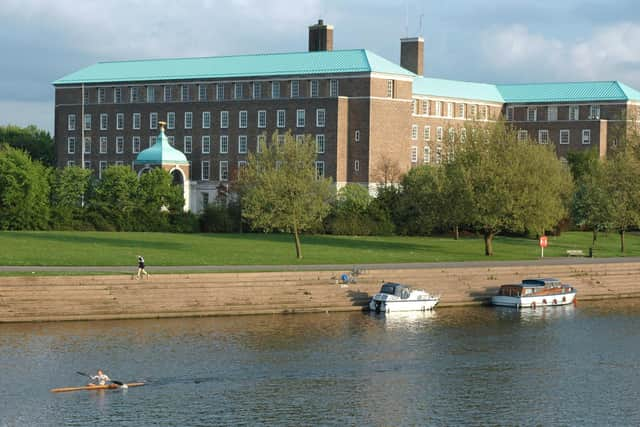Increase in school refusers, pregnant pupils and mental health concerns among Nottinghamshire pupils
and live on Freeview channel 276
Statistics show a 111 per cent increase in ‘school refusers’ in the county from autumn 2020 to summer 2021.
The data, provided to the Notts County Council’s children and young people’s committee, equates to 125 pupils refusing to attend school last year, compared with 59 the previous year.
Advertisement
Hide AdAdvertisement
Hide AdThere were also 157 pupils missing school due to mental health, which marked a 63 per cent increase on the previous year.


Five pupils were absent from school due to pregnancy in summer 2021, compared with three the previous year and none in 2019.
The council requires schools to report instances where children and young people are in receipt of less than 25 hours of education during the week.
Councillor Jim Creamer said: “These are very high percentage numbers. It is definitely going in the wrong direction. What has gone wrong and what are we doing to address the figures?
Advertisement
Hide AdAdvertisement
Hide Ad“It does concern me about mental health because of Covid, there are going to be serious issues in more formative years.”
Tenacious
But a council officer said that they have been ‘tenacious’ at collecting the data from schools, which could explain the increased numbers.
Marion Clay, council education, learning and skills service director, said: “We have seen a negative impact of the pandemic on children’s social and emotional mental health.
“Schools are increasingly engaging with mental health training and every school will have a mental health lead.
Advertisement
Hide AdAdvertisement
Hide Ad“We have become quite tenacious about collecting that data. I suggest one of the reasons we have seen an increase is because we chase it.”
Council papers stated: “Numbers increase into the secondary phase, peaking at Year 11, however from autumn ’20 to summer ’21, we have seen a significant percentage increase in Years 7, 8 and 9.
“Partial school closures due to Covid cannot be ruled out as having impacted these year groups, particularly Year 7 and 8, who missed the usual transition arrangements to secondary.
“When considered in conjunction with the increase in reasons given by school relating to mental health, school refusal and behaviour, it would appear children within these year groups in particular have been affected.”
